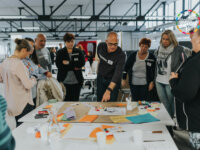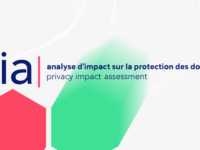The Lab is an all-of-government neutral space enabling agencies to collaboratively innovate to make it easier for people to access government services. It's a design & development lab to experiment, drive and enable the systemic change of government for the benefit of society. We are providing a way to direct public funding to systemic improvements, horizontal efforts around shared goals, capability uplift, high value reusable components and actionable innovation for all participating agencies.
Innovation Tag: Product Design
The Government of Slovenia has developed a new approach to preparing government services and public policies. Through specially designed workshops with a 360° approach to different stakeholders, these so-called ˝Policy Jams˝ aim to develop citizen-centred policy solutions. Based on systems theories and service design principles they open up the discussion space, while gearing participants toward finding viable innovative solutions.
Highway Interchanges are often highly congested. Solving it with traditional measures is costly. With the first Diverging Diamond Interchange (DDI) in Europe, road users change lanes when passing over the highway with fewer conflict points, enabling more capacity, improved safety and less congestion. The Danish DDI has a high return on investment. It was brought to life by an open innovation collaboration between the Danish Road Directorate and the Missouri Department of Transportation.
Social innovations offer many new solutions to today’s challenges. Yet, they encounter difficulties in becoming known. Social innovation Crossroad offers a precise vision of social innovations in France. To do so, a search engine gives access to 5000 projects already capitalized by 50 actors. Financers, coaches, academics and projects holders now get reliable information, automatically up-to-date and enter a new community. Small as well as big projects are highlighted the same way.
Over a third of U.S. federal employees are eligible to retire in the next five years, yet only 6% of employees are under 30—a pressing issue given the rate of innovation. Piloted as an effort between agencies and a student-led nonprofit, the Civic Digital Fellowship recruits the next generation of technologists—students and recent grads—pairing them with in-need agencies. It has scaled to six agencies, and is an attractive on-ramp for technical students into public service.
The General Data Protection Regulation (GDPR) requires that organisations carry outData Protection Impact Assessments (DPIA or PIA) prior to starting a likely risky processing operation. The PIA tool is a free and open source software tool, available as a standalone and “server” version. It helps organisations to conduct PIAs by guiding them through the process step-by-step, and thus to demonstrate compliance with the GDPR.
Instead of composting or incinerating invasive alien plant species, we are developing new ways how to process them into new, useful products (paper and wood products, dyes and hybrid coatings, extracts for controlling of plant harmful organisms, food source, input materials for the industries of the future and 3D composites). Invasive alien species are a locally accessible and abundant resource and opportunity for a new business model, promoting zero‑waste approach and circular economy.
The Personal Micro Credit (PMC) initiative aims to move people who cannot access mainstream credit away from high cost moneylenders, by providing an alternative, legitimate, low cost personal loan scheme, delivered through the nationwide network of credit unions. Innovation stems from a multi stakeholder approach (government, agencies, regulatory and the social economy). PMC offers a path to those excluded from affordable credit to ‘graduate’ to having access to mainstream financial…
The reason for the development and launch of our e-solutions was to facilitate the collection of initiatives and proposals to eliminate administrative burdens and review their implementation in one place.
Our innovation provides users with an on-line one-stop-shop solution, where they receive all information about activities in eliminating administrative burdens and preparing better legislation, and enables systematic collection, resolution and monitoring of implementation of proposals.
Better Reykjavik is a co-creation project of the Citizens Foundation, Reykjavik City and its citizens that connects them and improves trust and policy.
It’s a platform for crowdsourcing solutions to urban challenges and has multiple democratic functions: Agenda setting, Participatory budgeting and Policymaking.
Innovations include unique debating system, crowd-sourcing, submission of multimedia content and extensive use of AI to improve the user experience as well as content submitted.




